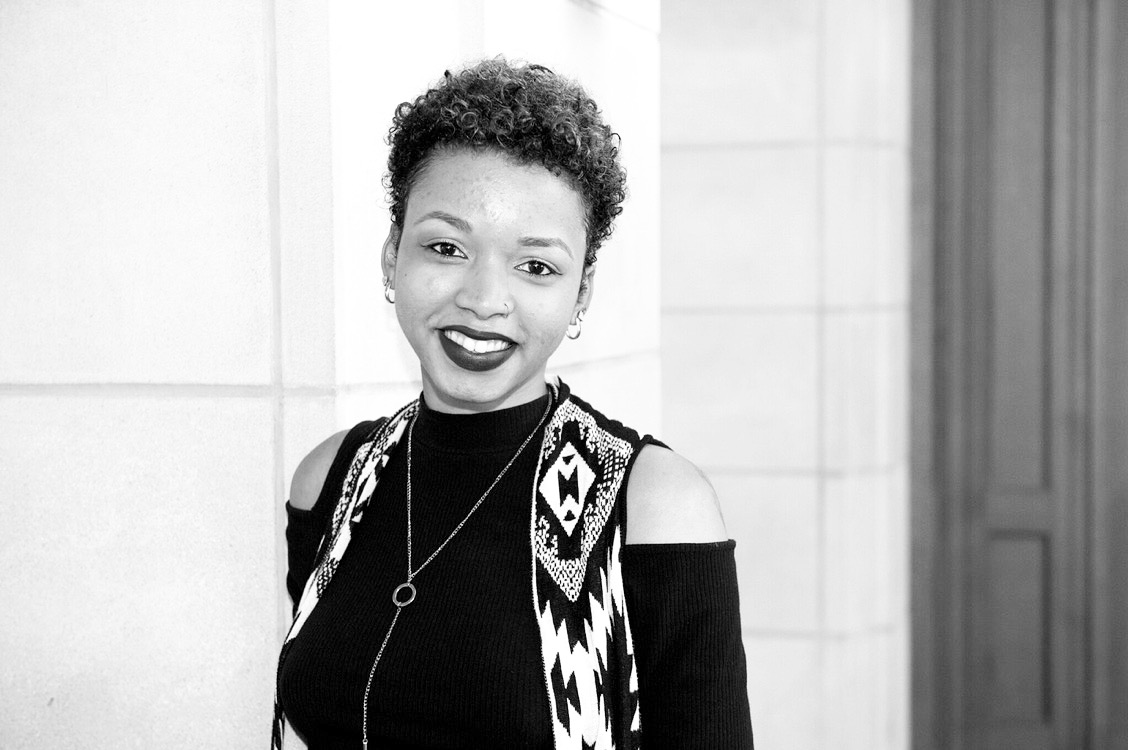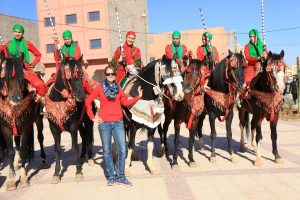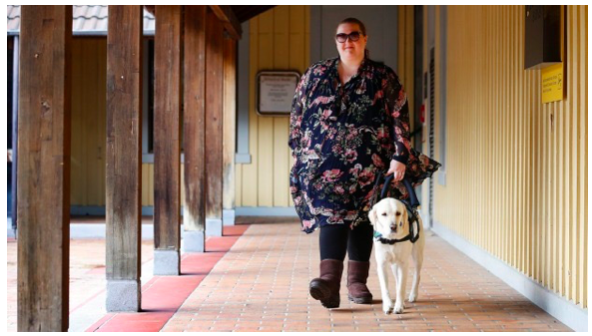
Darriel McBride, 2017-2018, Fulbright English Teaching Assistant to South Africa
My name is Darriel McBride, and I am the fifth of six children. I am the youngest girl and the first in my family to attend college. I was raised by a single mother and welfare recipient battling chronic anemia and kidney disease. My father is a heroin addict who has been absent for the majority of my life. I grew up in the South Bronx, one of the most underfunded and under-resourced districts in the United States. Growing up, I was exposed to an environment plagued by crime, violence, and drugs, all of which had the ability to hinder my chances of success.
College had never crossed my mind as I progressed throughout my early years of high school. I knew I could never afford the tuition, which meant that my chances of earning a degree were slim. Yet, I came across an opportunity during my senior year of high school that would change my life forever: I was awarded a scholarship through the Gates Millennium Scholars Program, funded by Bill and Melinda Gates. This scholarship would cover any unmet need for my undergraduate, master’s degree, and doctoral studies. If it were not for the Gates Millennium Scholarship, I would never have been exposed to the kind of opportunities that I was able to take advantage of while in college. In August of 2013, I was accepted into Marist College as a recipient of the Arthur O. Eve Higher Education Opportunity Program, a partnership between the State of New York and its independent colleges which provides economically and educationally disadvantaged residents the possibility of a college education.

Lin Shi, 2013-2014, European Union, with fellow Fulbrighters visiting Omaha Beach in Normandy, France, on an excursion organized by the Council on International Educational Exchange; (from left to right) Samantha Lopez, Nathan Hoffmann, Drew Lerer, Maggie Balk, Myles Creed, Lin Shi, and Marco Rimanelli.
I was excited and grateful to be awarded the Fulbright-Schuman grant to the European Union back in 2013, which gave me an opportunity to immerse myself in two European countries for a nine-month period. That fall, I boarded a plane to Brussels to work as a researcher in Liège, Belgium for several months and then relocate to Rotterdam in the Netherlands for the second portion of my grant. My goal was to study the European Union’s public and private pension systems with the intention of eventually sharing my research findings back in the United States. (If you’re interested in more details about my research and experiences, please see my earlier post here.)
One thing that is so special about the Fulbright Program is that it’s not just an academic/teaching opportunity, but also a chance to be immersed in both the community of the host country as well as the broader, global Fulbright community. Since returning to the United States, I’m thankful that my connection to my mentors and friends in Europe have continued along with connection to the Fulbright community more broadly.
Fulbright Celebrates the 27th Anniversary of the Americans with Disabilities Act
July 26, 2017Today, the Fulbright Program wishes the Americans with Disabilities Act a very happy 27th anniversary! Fulbright strives to ensure that its participants reflect the full diversity of U.S. society and societies abroad.
Applicants with disabilities are encouraged to apply and can learn more about resources and opportunities at https://www.eca.state.gov/fulbright.
Please also visit the National Clearinghouse on Disability and Exchange at http://www.miusa.org/ncde, a project sponsored by the U.S. Department of State’s Bureau of Educational and Cultural Affairs and administered by Mobility International USA, for more useful information on applying.
Have Questions About What It’s Like To Be a Fulbright U.S. Student? Ask a Fulbright Alumni Ambassador.
July 20, 2017
Are you interested in applying for a Fulbright U.S. Student grant and have questions about what it’s like to be a Fulbrighter in a particular country or field? Are you currently working on a Fulbright U.S. Student Program application? Are you a Fulbright Program Adviser (FPA) who would like a Fulbright alum to present on campus and share information about what’s involved in applying to Fulbright and what the experience is like in-country? Reach out to a Fulbright Alumni Ambassador!
The 2017 cohort of Fulbright Alumni Ambassador bios are now available on our website along with each ambassador’s contact information. We encourage prospective applicants and FPAs to contact Fulbright Alumni Ambassadors for tips, testimonial and advice – all throughout the academic year. Good luck!

Gwyneth Talley, 2015-2016, Morocco (third from left), at the opening of a festival in Zagora, Morocco with Amal Ahmri and her tbourida troupe.
My Fulbright journey began with one distinct moment: My first Arabic class in 2009 where Tunisian Fulbrighter Beligh Ben Taleb, a Fulbright Foreign Language Teaching Assistant (FLTA), taught me my Alif–Baa–Taas (or my Arabic ABCs) at the University of Nebraska–Lincoln. It was Beligh’s first trip to the United States, first Ramadan in a non-Muslim country, and first American teaching experience. He would set a high bar for all the other Fulbright FLTAs to follow at the University.
I remember the class vividly, full of heritage speakers, curious students who wanted to work in government, and a few looking for a challenging language. Beligh took teaching Arabic in stride and encouraged us to participate in cultural activities by cooking traditional Arab meals, helping us translate songs, and dressing us up in Tunisian clothes. Aside from learning how to introduce ourselves, the most memorable phrase I remember Beligh teaching me was: “I ride horses.”
In the summer of 2010, I took my first trip to Morocco to study Arabic and French. I stayed with a horse training family, which would lead me to my graduate research in anthropology. While learning Modern Standard Arabic, my host family immersed me in Moroccan dialect and culture–specifically their horse culture. I also met the incoming Fulbright FLTA assigned to the University of Nebraska–Lincoln, Othmane Zakaria. He was born and raised in the city of Meknes where I was staying for the summer. We shared tidbits about our cultures, and I warned him to buy his winter coat in the States because Nebraska winters were not like winters in Morocco.


